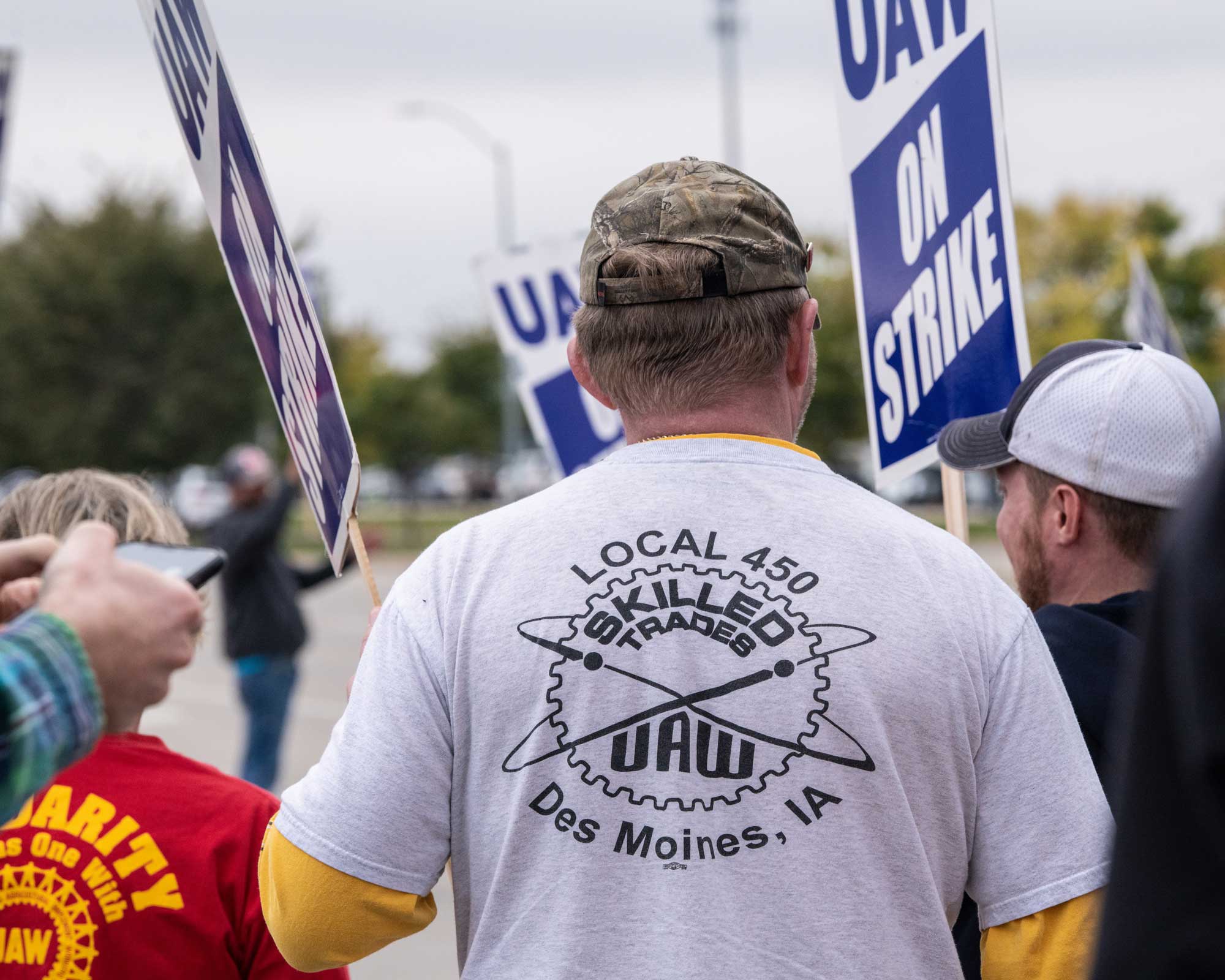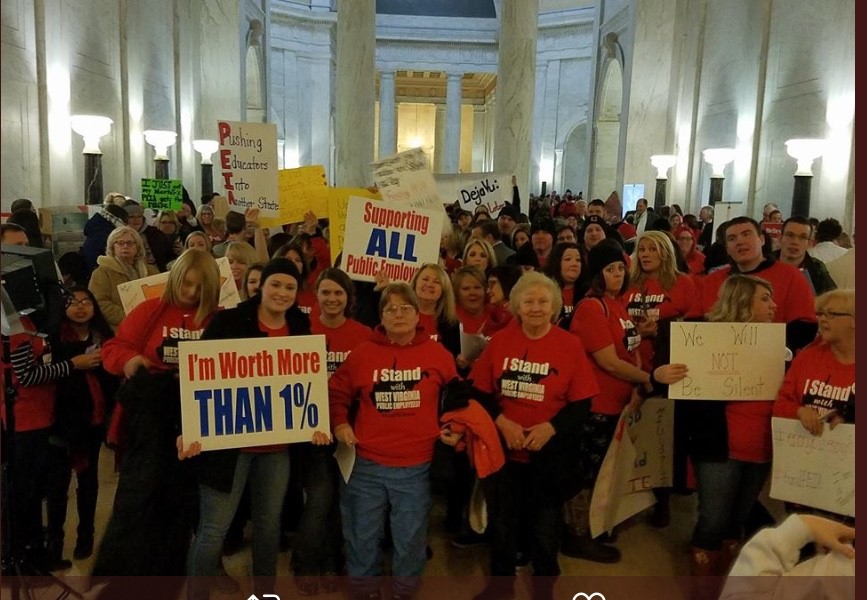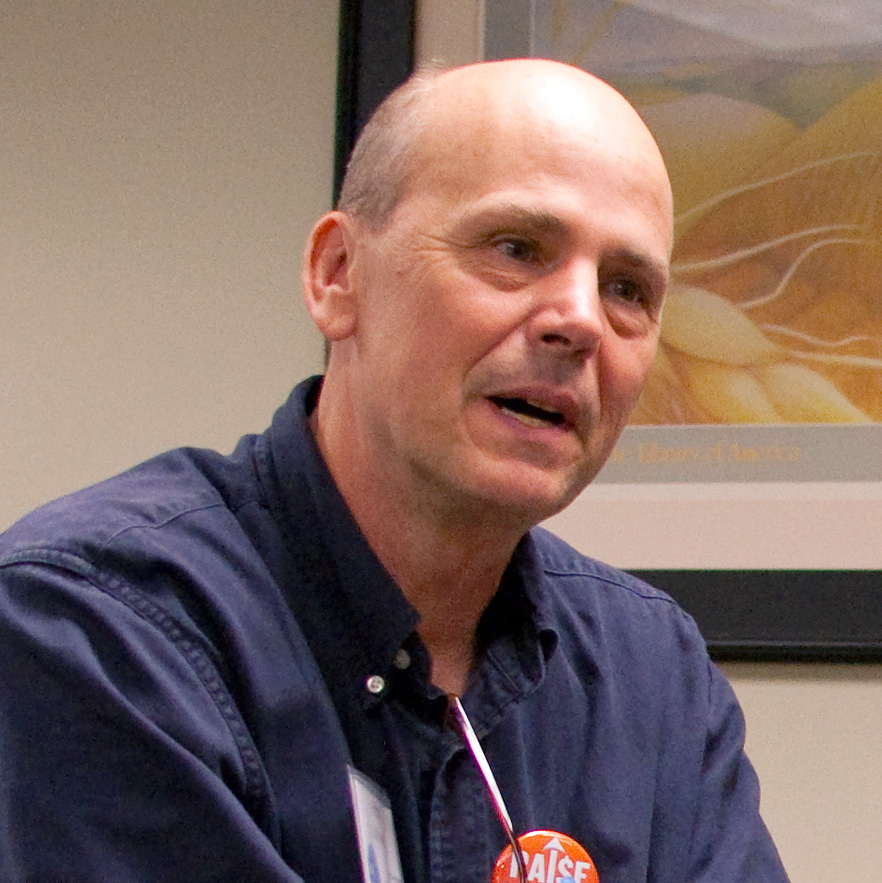
Members of United Auto Workers Local 450 at the John Deere Des Moines Works, in Ankeny, Iowa, on October 20, 2021. Lance Cheung/Public Domain
A lot is riding on the outcome of the United Auto Workers (UAW) strike against the Big Three carmakers. The ripple effects are likely to extend far beyond the automotive industry. Here’s what’s at stake:
Basic fairness. Let’s start with the obvious: Hourly wages for autoworkers have declined by 30% since 2003 when adjusted for inflation. When the Great Recession nearly tanked the industry in 2008—something workers did nothing to cause—the union accepted major concessions to keep it alive. These included a two-tiered wage and benefit system, a lengthy wage freeze, and reductions in benefits.
But the Economic Policy Institute notes that “Profits at the ‘Big 3’ auto companies—Ford, General Motors, and Stellantis— skyrocketed 92% from 2013 to 2022, totaling $250 billion. Forecasts for 2023 expect more than $32 billion in additional profits.”
Over the same period, CEO pay for those companies grew by 40%, while nearly $66 billion was paid out to shareholders in dividends and stock paybacks. Meanwhile, workers have reaped none of those rewards—and have continued to see their wages and benefits decline each year. That needs to change.
Shifting public opinion. More and more people agree that it’s way past time for the workers who created that wealth to share in record corporate profits. A recent poll found that a solid majority of people in the U.S. support UAW strikes, with 58% in favor and only 19% in opposition. In political terms, this includes a majority of Democrats (71% to 12%), Independents (51% to 17%), and Republicans (49% to 30%). According to a 2022 Gallup poll, 71% of people in the U.S. approve of unions generally—the highest level since 1965. If this trend continues, it could signal a more favorable climate to push for a fairer economy.
The positive effects of a stronger labor movement. In a tragically divided nation, unions are one of the few places where people come together in solidarity across lines of race, gender, ethnicity, religion, and politics to work for mutual benefit. The positive spillover effects of victories won by unions in terms of both contracts for workers and pro-labor legislation can protect and raise living standards across the board.
Momentum. Both victorious and defeated strikes and labor organizing drives can set a long-lasting precedent. Some readers may recall then-President Ronald Reagan’s firing of over 11,000 striking air traffic controllers in 1981, which set the stage for years of strikebreaking and union busting in industry after industry. Now, it appears that workers and their organizations are fed up with decades of stagnant or declining wages and working conditions.
According to Cornell University’s Labor Action Tracker, there have been 312 strikes so far in the U.S. in 2023 involving around 453,000 workers, up from 180 strikes involving 43,700 two years ago. A good outcome of a strike on the scale of the UAW’s current struggle could strengthen the movement for economic justice, encourage other workers to organize and mobilize for better wages and working conditions, and signal to employers and lawmakers that a sleeping giant has awoken.
Uniting struggles for labor and climate justice. Perhaps most significant is that the UAW strike takes place at the intersection of class and climate. One of the issues in the work stoppage is the need to ensure that workers don’t suffer as the industry shifts to cleaner electric vehicles. This would be one real example of a “just transition” for workers, something urgently needed if the deadly challenges of climate change, extreme inequality, and a toxic political climate are to be effectively addressed.
The concept of just transition is generally attributed to the late Tony Mazzocchi (1926-2002), former visionary president of the Oil Chemical and Atomic Workers International Union. He laid out the basic idea in an essay published in the early 1990s, saying that “we need to provide workers with a guarantee that they and their families will not have to pay for clean air and water with their jobs, their living standards, their future.”
This must be a matter of reality more than of rhetoric. As United Mine Workers President Cecil Roberts once wrote, “Do not talk about a ‘just transition’ until you can prove there will actually be one…” Unfortunately, this has sometimes been neglected by activists out of touch with class issues. I can say from years of experience in West Virginia that efforts to effect progressive change without or against the working class are a recipe for disaster.
If there is to be a decent economy for people and planet, the struggles for worker and climate justice—for those who worry about the end of the month AND the end of the world—must unite.

